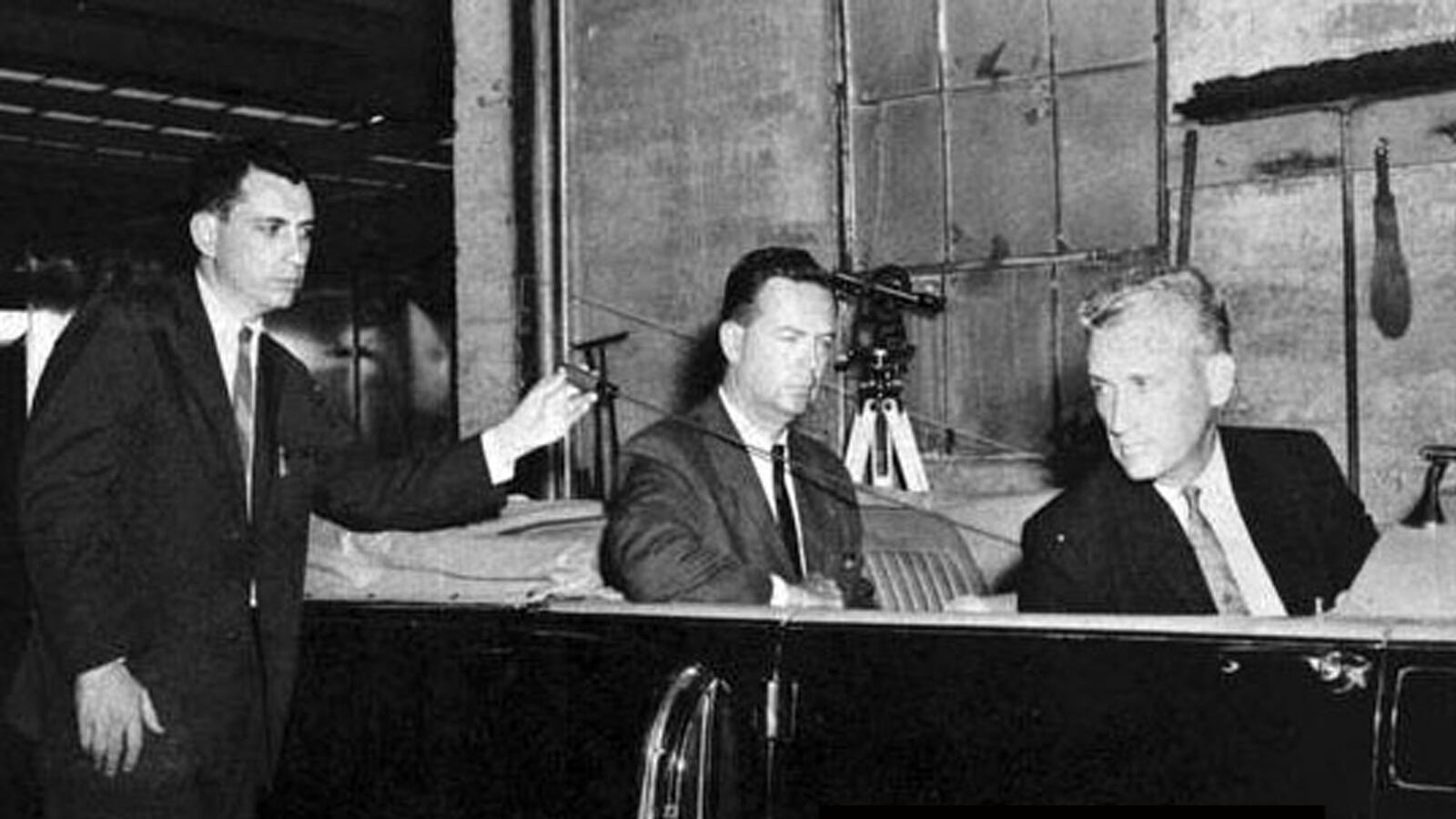I was not quite six years old, but I knew something was very wrong because Mrs. Klaus, who picked me up from school on that cold Friday afternoon in late November, was crying. The president was dead and I was just old enough to understand. That Sunday I saw Jack Ruby kill Lee Harvey Oswald live on national television, which made another indelible impression. So there was some context for me when my father left for Washington several weeks later as a 33-year-old assistant counsel on the Warren Commission staff.

The controversy over the Single Bullet Theory, which posits that the non-fatal wounds to President Kennedy and Governor Connally came from one rifle shot, and which is central to the commission’s finding that Oswald was the lone assassin, didn’t erupt all at once. The commission’s report was issued in September 1964. In 1966-67, when conspiracy theorists’ books were published, widely read and widely believed, many eyes fell back on my father, as he was responsible for investigating the basic facts of the assassination and was credited as the author of the Single Bullet Theory.
I accompanied my father to speaking events back then, when he was District Attorney of Philadelphia, and was surprised by how vigorously he was questioned and how fundamentally he was disbelieved on this subject. He had a wonderful set of replies: he’d begin by letting the speaker talk himself out. Then he’d ask whether the questioner had read the Warren Report. Usually, but not always, the reply was “no.”
Then he’d explain the evidence in support of the theory, ranging from analysis of film of the assassination, to the positions of the president and the governor in the limousine, the nature and locations of their wounds, ballistics testing and the re-enactment of the shooting. The audience would appear satisfied that my father’s belief was sincere and informed, but enormous doubt remained. My father would note that controversy still existed over the deaths of Lincoln and Jesus, which provided some historical perspective.
The controversy abated somewhat, but re-erupted in the mid-1970’s when it was revealed that the CIA had tried to kill Castro and this and other facts had been withheld from the Warren Commission. I was a freshman at Haverford College in 1975, and was literally besieged by my classmates. Defensively, I read the Warren Report and its critics.
In 1978, Congressman Robert Edgar, then a member of the House Select Committee on Assassinations, asked my father to help him. My father volunteered me instead, knowing that I had been debating this issue in college. I remember Bob Edgar sitting in the den of my parents’ house in Philadelphia, plaintively noting that he’d been the minister at the church a block away, but politely accepting me as poor 20-year-old substitute.
The House Committee concluded the Single Bullet Theory was correct, aided by scientific testing and analysis unavailable in 1964. But a majority of the members thought there was a conspiracy nonetheless, based on what was erroneously thought to be an audio recording of the shots. For the next several months, I helped Rep. Edgar prepare his dissent to those who contended there was a conspiracy. That effort morphed into my senior thesis, which argued that the audio analysis was wrong, as was later confirmed by the National Academy of Sciences.
From 1980-2010, I helped with my father’s senate campaigns. Public opinion polling revealed that about two percent of the electorate was consistently opposed to him based principally—and perhaps exclusively—because of his role in this controversy. Having read tens of thousands of polling respondents say why they were for or against Arlen Specter over 30 years, I don’t recall anyone saying anything good about his work on the Warren Commission. As a senator, he answered questions on the topic in hundreds of schools and town meetings in that span, and his staff recalls the continuing hostility and disbelief.
I’ve long believed that for a large swath of America a conspiracy is the inescapable conclusion. It is impossible for many to believe that someone as significant as John Kennedy could be killed by someone as insignificant as Lee Harvey Oswald. The Warren Report was and remains a symptom of disillusion with whatever the government says.
Almost no one knows—or cares—that the young men who staffed that investigation worked honestly and hard. Most went on to remarkably successful careers reflective of their selection as the best and the brightest to take on the awful task of determining who killed the president. That modern science has repeatedly affirmed their findings does little to abate the continuing doubt.
My father and I would joke that the Single Bullet Theory would be in the lead paragraph of his obituary. But he was at or near the center of so much for so long, other contributions and controversies surmounted this one in the retrospectives on his life. That’s true at least for now, but perhaps not forever.






